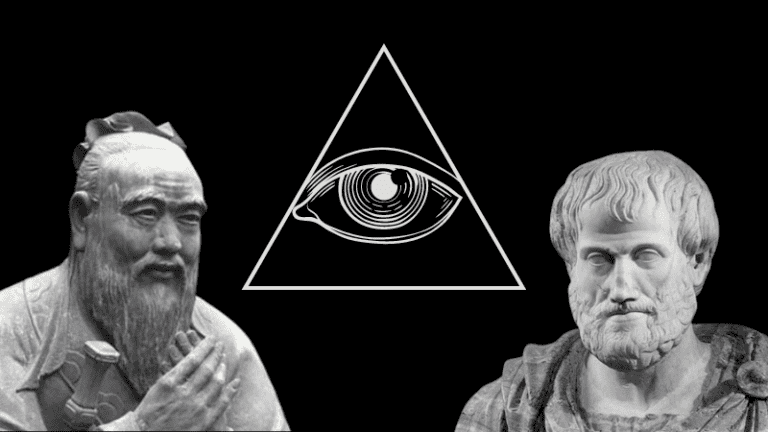Buddha already knew that we become what we think
Nowadays, we absorb more information in one day than people did in a lifetime in the past. It is now important that we do not let this information control our thinking. Because what we think is what we become in the long run.
"What we think, we become."
Siddhartha "Buddha" Gautama
Our actions are inevitably guided by what we think. If we tell ourselves in bed in the morning that this day will not be good, then we will pay more attention to the bad things that happen to us during the course of the day. Of course, this is also the case in reverse. If we tell ourselves in the morning that we will have a good day, we will pay more attention to the good things.
This selective perception is particularly easy to observe when you're about to start your driver's license and suddenly see driving school cars everywhere, or when you want to have kids and spot couples with strollers everywhere.
The biggest problem with selective perception is that our thoughts are largely formed from things we have experienced. So if we have more negative than positive input all day, the next day we will have more negative things to focus on. This can then lead to what is called a feedback loop. A feedback loop can be observed when you lift a microphone to a speaker and the sound permanently amplifies itself until it is just a high pitched whistling noise. In exactly the same way our thoughts can get into a feedback loop.
When we practice gratitude, being happy about small things, it can quickly bring more positive impact through a feedback loop.
However, should we have many negative thoughts, and should they be in a loop, then this can very quickly end in a downward spiral.
An example of this is people who think that humanity is nothing but a cancerous growth on the planet. These people now continuously focus only on the bad things that humanity is doing. Until they then sit in their dark closet and think about how they can take revenge on humanity. This can then end in the form of an attack on society.
Of course, not everyone who has a bad day is predestined to be caught in a downward spiral and plan an attack. But it is the preceding process for all people who do this.
But it is much more important to look at the other side of the coin. How much good has already been achieved throughout history. But it's not always about doing good, it's also about finding peace in our own minds. The easiest way to do this is to try to worry less. Because if every worry can give rise to many new worries, then every thought of contentment can also give rise to a multitude of satisfying thoughts (if the subject of worry concerns you more closely, we recommend this article).
To show this "multiplication" in a somewhat simplified way, I will demonstrate the positive as well as the negative loop in examples.
The Negative LoopYou have handed in a bad class assignment. Now you imagine that you're going to flunk this subject because of it and you're already writing it off. You will hardly report to class and you will hardly put any energy into it. Possibly this was the subject that will ensure that one will remain seated and take a year longer in school. Also revealing, our own incompetence shows us that our character is not as well rounded as we thought. The fact that we will remain seated and need a year longer in school will ensure that no employer will want to hire us after school, because the others have passed everything in the regular school period. Now we have existential fears about the entire course of our lives and all because we focused on the negative.
The Positive Loop: We turned in a bad class assignment. We know that now we have to try even harder orally and study more for the next class assignment. With the extra diligence and discipline we have gained, we will be able to study better or more efficiently in the future, for all upcoming papers. We may even be able to raise our grade point average. Our future employer will see that our grades were getting better towards the end of school and will hire us because of our diligence.
The initial situation is the same in both cases, the only difference is how we reacted to it. The decision how we react to situations is always ours. The decision what we think is always ours. We ourselves can decide what we put our focus on. So it is our own decision whether we focus on the beautiful, the good and the desirable in life or on the ugly, the bad and the irrelevant.
Why we are exclusively responsible for ourselves, we discuss in this article about another quote from Buddha.
Try to keep this in mind in your daily life. Try to direct your thoughts to what you think is worth thinking about. Because at the end of the day, we are all just the sum of our thoughts or in other words: what we think, we become.







